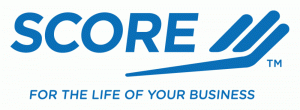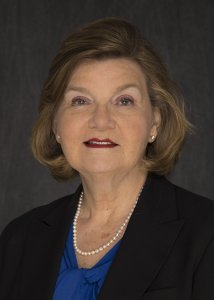Get to know Julie Johnson, SCORE’s new District Director
If you’re not familiar with SCORE yet, it’s time to check out this free, accessible resource for business owners.
SCORE, which stands for Service Corps of Retired Executives, is a national nonprofit organization that provides guidance and mentoring to entrepreneurs and businesses at any stage of growth. The organization boasts over 10,000 volunteers representing 62 industries across the country.
Though most people begin by seeking assistance from their local SCORE District Office, the nationwide database of volunteers is available to anyone. If a subject matter expert isn’t available locally, it’s almost guaranteed that you can find someone to assist you remotely.
South Dakota’s SCORE operations recently hired a new district director, Julie Johnson. She is a licensed attorney, a registered lobbyist at the SD Legislature, and she has long been involved in the areas of small business and economic development.
We spoke with Johnson about the experiences that brought her to this role and her vision for SCORE statewide.
The following conversation has been edited for length and clarity.
Tell us about yourself and the experiences that led up to this role with SCORE.
I’m the product of a third-generation family business here in Aberdeen. Our grandfather started a car dealership here in 1919, so I’ve always had that view of the world—rural America, small communities, family business, small business, and entrepreneurship.
I had the opportunity to use my law degree in some fun and unique ways in our state capitol. I was the secretary of labor for South Dakota after having some employment practice in our law firm, and from there, I went on to run the state’s chamber of commerce which meant that my job was to advocate for South Dakota’s business community, largely to the legislature.
Then the governor called me again, and I went back to run the Department of Revenue, which was another great adventure. He wanted somebody who had real-life business experience in that position, and I was privileged to do that at a very important time in our economic history. Following that, I was the administrative law judge for the state and also ran the South Dakota Rural Development Council which was a very interesting opportunity to do business across all boundaries and silos including federal, state, local, tribal, and private sector entities.
Later, I was asked to work for my hometown and run a growth initiative that we called Absolutely Aberdeen. It also had a regional development arm called Prairie Vision where we got to do a lot of advocacy and development work, not just for Aberdeen but the whole region. We developed an entrepreneurship program called Big Idea which is a high school business idea competition that is now statewide. A lot of people in this area, particularly, are very proud of that, and it was a real collective effort from the group that was involved. I did similar work for Northern State University, with a program called the Center for Creativity, Innovation, and Entrepreneurship. It was doing some amazing work on campus and across the community.
I’ve had kind of an interesting career path to end up as the SCORE District Director, but it’s been a bundle of great opportunities that have presented themselves to me, and I’ve been enriched by them.
How did you first become interested in SCORE?
I was a SCORE volunteer in the Aberdeen area years ago. I’ve always been in the legal world, so I would mentor on subjects related to those issues. That’s branched out a little more into HR and employment, state and local taxes, and I know the economic development programs as well, including legal frameworks and incorporation. All of those are right up my alley.
A couple years ago, I looked up and thought, “You know, I should probably connect with SCORE again, given the weird background I’ve had.” I’ve been able to do some advising of business folks as a volunteer for many years, and so I surfaced again in the ranks of SCORE.
When the district director position opened up, it all just came together with the perfect timing. I started in the role around July 1, and I have a little office set up here in Aberdeen.
What is something unique that you bring to the table for this role?
I’ve lobbied the state legislature for a great many years—that’s one of the common threads in my career—and I’ve dealt with economic development issues almost all of those years. I have a really good perspective about where the gaps are and how volunteers and other resources can come together to fill information needs for entrepreneurs and small business folks in the state, especially at a time like this.
There are a lot of great federal resources that have been made available with the pandemic, but there are other information needs out there beyond just how to get a PPP loan or how to get it forgiven. How can we, as SCORE mentors, find a way to fill those needs? We’ll be working across all the boundaries and all the silos to tease out what those needs are.
What are your goals for the position?
First of all, it’s to reconnect with the SCORE volunteers of the past and be sure that we’re sensitive to their needs. Do they need additional workshop experience so they can sharpen their skills? Can we bring some experts together and do a high quality workshop by Zoom or in person someday?
The opportunity that SCORE has in South Dakota is to fill the gaps. There are federal, state, and local programs, but SCORE can help connect the dots. We’ll identify areas that could use more SCORE resources, and we’ll be working pretty hard to fill those, no matter where they are.
Eventually, with permission from the small business person or entrepreneur, we hope to tell the stories of successful South Dakota business folks and how they took that next step.
We’re going to try to gain some additional visibility, but we won’t just do it for SCORE. There are other resources out there that are incredibly useful too, from the Veterans Business Outreach Center, to the Women’s Business Center, to the Small Business Development Centers. They’re all incredibly skilled, and sometimes people need to meet there first. We’re not the first line of defense, and we want to be sure that our volunteers know these other resources exist and how to plug into them.
What makes SCORE special?
My take is that it’s a cadre of seasoned business folks, successful small business people, entrepreneurs, and technicians in various walks of life who are offering their services for other people to succeed. They’ve been down these pathways before and have specific expertise in their industries as well as good listening ears. They’re generous with their time and advice, and they love working to help other business people be successful. And it’s free!
Additionally, SCORE has been put in place for people to ask those questions that they couldn’t ask a federal agency. You can ask confidential questions in this setting, and the answers will be protected. SCORE volunteers take a code of ethics that says we will not be using information for our own private purposes, so people have that satisfaction of knowing there’s a certain amount of privacy involved.
Are you accepting new volunteers?
I don’t think we can ever have too many, so we’re checking back with those who have volunteered in the past, and asking if they still want to be involved, or if they have a friend or colleague we should add to our ranks. We’re also going to be checking with other professional groups, like CPAs, lawyers, and bankers, on talent they may have who would want to join these ranks. Are there seasoned members of the profession or recent young retirees who’d love to offer their advice?
The little bit of SCORE mentoring I’ve done in recent years has been incredibly rewarding. It’s an enriching opportunity to be able to keep your ears open to the needs of today’s business people and entrepreneurs, and to know when, why and how to provide useful expertise to them. Plus, we get to be involved with most of the state’s entrepreneurship efforts, from youth to college and beyond, and that piece is incredibly rewarding.
It’s easy to become a volunteer, and we look forward to including you.
Email Julie Johnson at [email protected] if you’re interested in becoming a SCORE volunteer.
